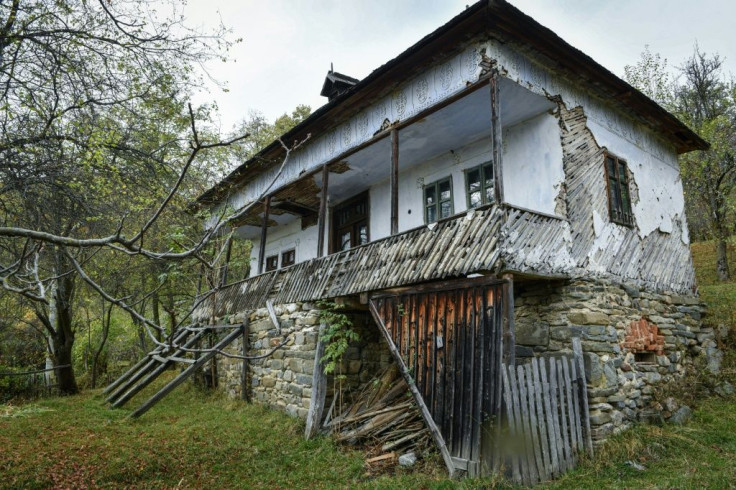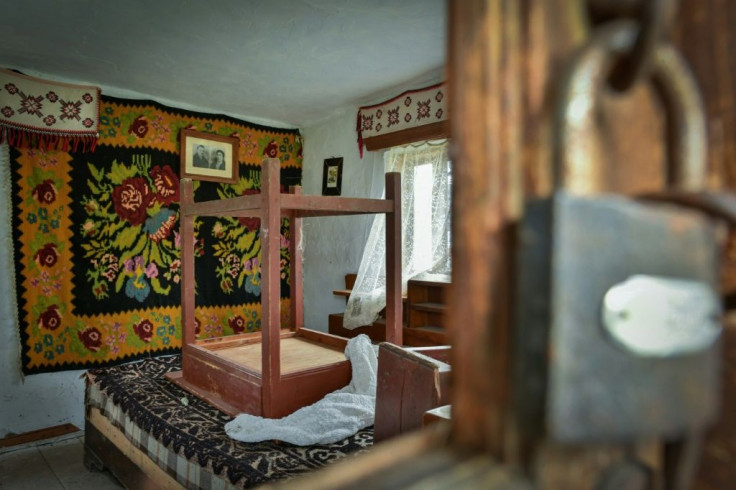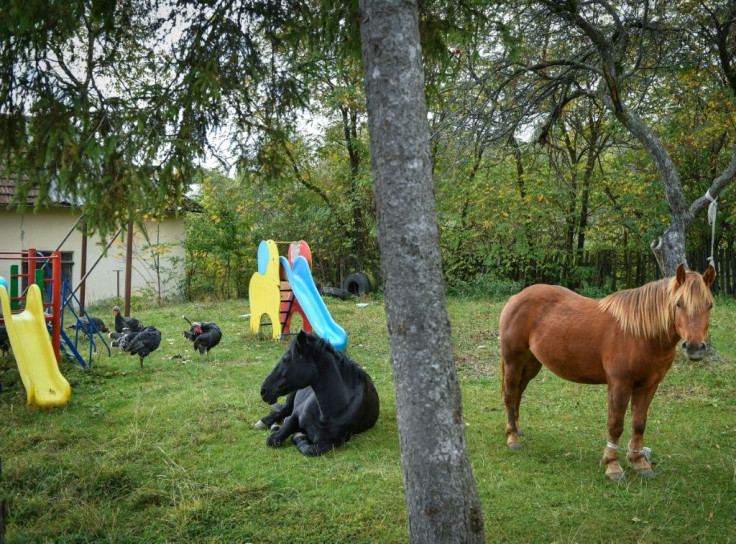Romania Presidential Hopefuls Court Crucial Emigrant Vote

With a religious icon pinned to a wall, washing hung out to dry, and a table and two chairs standing on a terrace, Paraiesti looks like almost any other village in rural Romania -- at least at first glance.
But Paraiesti is actually more of a ghost village where, with a population of just 250 people, nearly one house out of every two stands empty.
The state of abandonment only becomes apparent on closer inspection: wooden pillars are cracked, roofs partly caved in, and yards tangled with weeds.
"There aren't many people left on this street. Most are gone or have died," says Viorica Balasoiu, 70, who lives alone in her house on a steep hill.
Since the fall of communism 30 years ago, about four million Romanians out of a total population of 20 million have left the country in search of better-paid jobs elsewhere.
But it is precisely the votes of these "overseas Romanians" that the candidates in Sunday's presidential election are chasing as they could swing the result.
In 2009, for example, 100,000 diaspora votes helped centre-right candidate Traian Basescu beat socialist Mircea Geoana.
This time, three times as many polling stations have been set up in Western capitals for the emigrants after long queues in previous years triggered angry accusations of poor organisation and forced two foreign ministers to resign.
The overseas voters have three days in which to cast their ballot.

This time round, the three leading candidates even addressed the diaspora directly in their campaign speeches, entreating them to come home as their "future is in Romania".
Sunday marks the first round of voting, with a second scheduled for November 24.
Incumbent centre-right Klaus Iohannis is the front-runner for a second term in office in the poor, corruption-plagued EU member.
Trailing him are former prime minister Viorica Dancila, a Socialist whose government was deposed in a parliamentary no-confidence vote last month, and Dan Barna, leader of the anti-establishment Union Save Romania (USR) party.
Despite the politicians' pleas, the proportion of Romanians wanting to return has fallen to 47 percent from 57 percent in 2017, according to a survey of 1,810 emigrants conducted by Open-I Research agency.

Corruption is top of the list of reasons why they stay away, a scourge they feel politicians are failing to eradicate.
Dancila's government, in power from 2016 until last month, saw massive anti-corruption protests, with many of the expatriates coming home during the holidays to see their families and take part in the demonstrations.
The Romanian name for the overseas citizens is "capsunari" or "strawberry pickers", a derogatory term coined in the early 2000s when thousands of seasonal farm workers left for Spain.
But nowadays, increasing numbers are leaving with higher education degrees.
In the first nine months of 2019, Romanians filed two million applications for jobs overseas, according to the recruitment site eJobs.
"More and more specialists and business people want to leave, most of them for good," eJobs Romania CEO Bogdan Badea said.
Even if they don't return, the emigrants -- who usually earn more abroad than the average Romanian net wage worth 3,100 lei (647 euros, $717) -- frequently invest their savings back home, sending nearly three billion euros ($3.3 billion) to their families last year.
Adrian, 43, works six months a year in construction in Britain.
With the money he has set aside he has built a house for his daughter in Albesti in central Romania, near other modern villas erected by fellow "capsunari" along the main street.
"Migration has beneficial effects: it reduces unemployment and pressure on health and education systems, boosts gross domestic product and brings down poverty levels" in the country of origin, sociologist Alin Teodorescu told AFP.
In Paraiesti, Nicolae Ion insists on staying.
"Poverty tells me to leave but if I do, the forest will invade this place," says the 42-year-old, whose sister and brother work in Western Europe.
"Before, when I went to buy bread, I would see lots of children. Today, there aren't any," he says bitterly.
At the other end of the village, two horses graze peacefully in the playground of a school that was closed four years ago.
mr-jza/spm
© Copyright AFP 2024. All rights reserved.




















